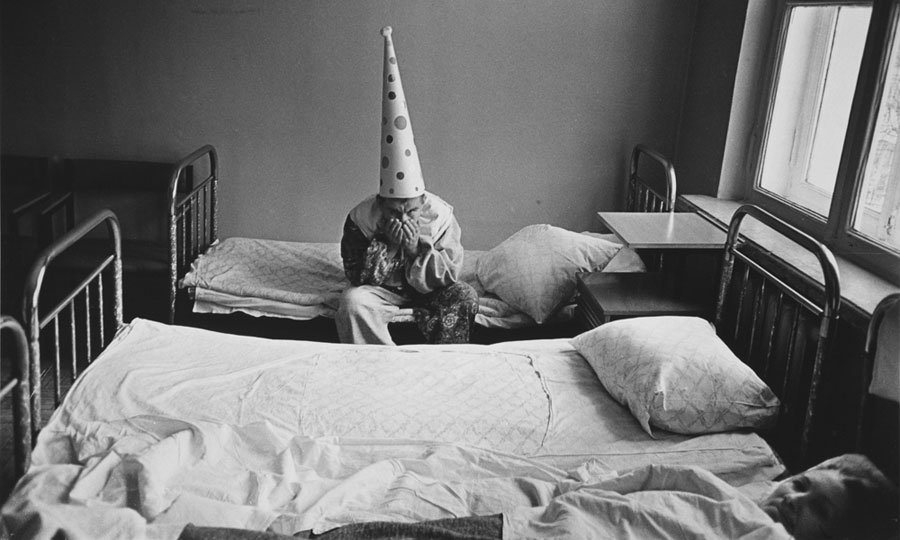Surviving in a Psychiatric Hospital
What are the unwritten rules of behavior in psychiatric hospitals? How should you interact with other patients and medical staff? How can you speed up your own discharge? Here are some tips from someone who has experienced life inside these institutions.
Unwritten Rules for Survival
- Never tell the “truth” to anyone. No matter what you really think about the staff, your mental state, or anything else—never share it. Anything you say can be interpreted as a symptom.
- If you attempted suicide, blame it on heartbreak. Express deep regret and insist it will never happen again. This is what you should tell anyone who asks.
- Tea, cigarettes, and books are essential. Tea is used to make a strong drink and is enjoyed in a cozy group. But be careful—there are people you shouldn’t share tea with, similar to prison dynamics. Figure out early on who to trust and who to avoid.
- Don’t talk too much. Loose lips are dangerous. But don’t be sullenly silent either. Try to act like a cheerful, energetic person who clearly doesn’t belong there. For example, I used to review discrete mathematics and formal logic.
- Fights will happen. Don’t get involved. Getting into fights leads to restraints, heavy medication, and a zombie-like state. In some places, they even use particularly harsh drugs. Avoid at all costs.
- Complaining is pointless. The hospital is a state within a state. The staff can get away with a lot.
- Arguing with administration is a losing battle. Don’t even try. It’s not worth it.
- Arrange for regular deliveries of food, tea, and cigarettes. Keep your supplies in a neat bag or purse. If you see something being stolen, don’t get into a fight—let your trusted group know and they’ll handle it.
- Don’t eat used tea leaves or smoke cigarette butts. You can share a cigarette with someone, but don’t stand around waiting for leftovers. It may seem obvious now, but things are different inside.
- Don’t play cards for money—or at all. Just don’t play. Read a book instead.
- Remember, you’re surrounded by people with mental illnesses. They may seem normal, but there’s always something off that’s hard to pinpoint.
- Prepare a role for yourself. Be the cheerful, slightly wayward person who just made a mistake. This persona should be well-rehearsed and not connected to your real self. When it’s time for psychological tests, answer as this character. Know your role inside and out.
- If medication is making you feel bad, you can complain to the on-duty psychiatrist. If you’ve followed the previous rules, you’ll be in good standing and might get something better.
- There are some perks. For example, you can sometimes ask for a “tasty” pill at night. You’ll quickly learn which medications are preferable.
- Smart patients give small gifts to nurses. Candy, fruit, or other treats go a long way. This is a wise investment for the future and should be done.
- Take care of your hygiene. Always. Wash your hair, clean yourself, shave, trim your nails, and change your clothes. Staff dislike people who are dirty. It can be hard, but it’s necessary. If needed, ask the nurses for help.
- Always keep a stash of cigarettes you don’t share. Even if you don’t smoke, you’ll probably start. It’s almost impossible not to give cigarettes away, but you need to keep some for yourself.
- If a nurse or psychiatrist asks about others, say you know nothing. You didn’t see or hear anything. If someone asks you to get something from their locker or bed, go with them and have them hand it to you directly. Never take anything on your own.
Understanding the Hospital Hierarchy
In psychiatric hospitals, the real power lies with the junior staff: orderlies, nurses, and attendants. They form a kind of clan, and if you don’t get along with them, you could be in serious trouble. Doctors rarely get involved and rely entirely on the nurses’ reports. The first two months are the most important for establishing your reputation, which is hard to change later. Nurses, often too lazy to observe patients closely, tend to write the same things in reports day after day, copying from previous notes.
Dealing with Psychiatrists
Arguing with psychiatrists is pointless. They don’t listen to what you say, only how you say it. Don’t get emotional—otherwise, they’ll write that you’re “agitated and fixated on emotionally significant topics.” If you seem too depressed or gloomy, they’ll note depression. If you’re too cheerful, they’ll call it an “inadequate reaction.” Indifference is also bad—they’ll write “emotional flatness” or “apathy,” which are symptoms of schizophrenia.
How to Behave During Evaluations
- Don’t appear suspicious, guarded, or secretive.
- Don’t speak too confidently or assertively (they’ll call it “overestimation of self”).
- Most importantly, don’t hesitate—answer quickly and as naturally as possible.
- Whatever the doctor writes now can’t be disproved later. The first impression is everything in psychiatry.
Be wary of provocations! About a week before your expected discharge, staff may try to provoke you into acting out, which can be used as an excuse to extend your stay for “lack of progress.”
Author: Alex Pozinsky



